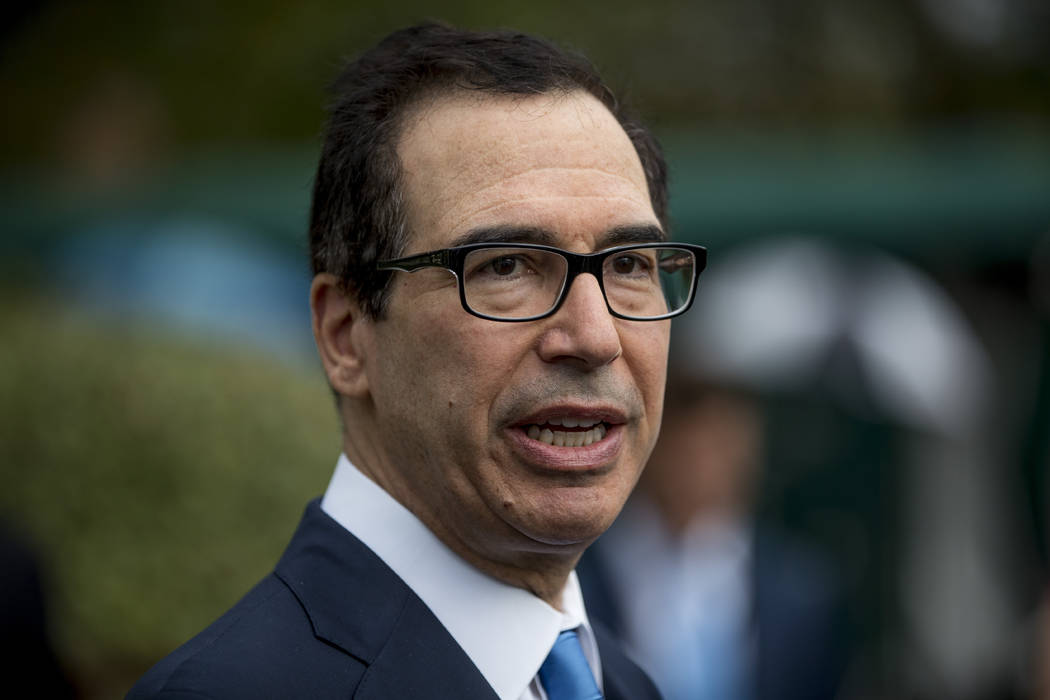Federal officials spar with senators over plan for mortgage giants

WASHINGTON — Trump administration officials on Tuesday defended their plan to Congress for ending government control of mortgage finance giants Fannie Mae and Freddie Mac, clashing with Democratic senators on whether the change would raise home borrowing costs and neglect lower-income homeowners.
The two finance companies nearly collapsed in the financial crisis 11 years ago and were bailed out at a cost to taxpayers of nearly $190 billion.
Treasury Secretary Steven Mnuchin and Housing and Urban Development Secretary Ben Carson, along with regulator Mark Calabria, director of the Federal Housing Finance Agency, testified before the Senate Banking Committee on the plan for returning Fannie and Freddie to private ownership. The companies have become profitable again and have fully repaid their bailouts. Under the plan, their profits would no longer go to the Treasury but would be used to build up their capital bases as a cushion against possible future losses.
Guarantee half of market
Fannie and Freddie together guarantee roughly half of the $10 trillion U.S. home loan market. They don’t make home loans. They buy them from banks and other lenders, and bundle them into securities, guarantee them against default and sell them to Wall Street investors.
The administration promises in the plan to preserve homebuyers’ access to 30-year, fixed-rate mortgages, which are the pillar of housing finance.
The plan “would preserve the longstanding government support of the 30-year, fixed-rate mortgage loan,” Mnuchin said. “That support, however, should be explicitly defined, tailored and paid for.”
Mnuchin acknowledged that for prices of 30-year mortgages to remain close to current market levels, some level of government support would be needed. He said Congress should authorize an explicit, paid-for guarantee “backed by the full faith and credit of the federal government” for qualified mortgages. The guarantee also should be available to competitors of Fannie and Freddie as mortgage financers, he said.
The administration initially looked to Congress for legislation to overhaul the housing finance system and return the companies to private shareholders. But Congress hasn’t acted, and now officials say they will take administrative action for the core change, ending the Fannie and Freddie conservatorships. They haven’t given a timeline for the administrative action.
“The Trump plan will make mortgages more expensive and harder to get,” said Sen. Sherrod Brown of Ohio, the committee’s senior Democrat.
Affordable housing at issue
A flashpoint came over the issue of affordable housing. Fannie and Freddie currently have mandated targets for helping low-income and minority borrowers to buy homes.
A change outlined in the plan, which would have to be approved by Congress, would replace Fannie and Freddie’s affordable housing goals with more “tailored support” for first-time homebuyers and low- and moderate-income borrowers. “We want to do it in the most effective way,” Mnuchin said.
Those proposals are “about leveling the playing field for Wall Street,” Brown said.
Sen. Mike Crapo, R-Idaho, the panel’s chairman, has previously proposed legislation to overhaul the housing finance system. He said at the hearing that the administration’s plan is close to his proposal, but “my strong preference remains to fix it through comprehensive legislation.”
Sen. John Kennedy, R-La., implored the officials to put a proposal before Congress. “This whole thing is a car wreck; it’s a dumpster fire,” Kennedy said. Put it before the committee, “and let senators be senators.”